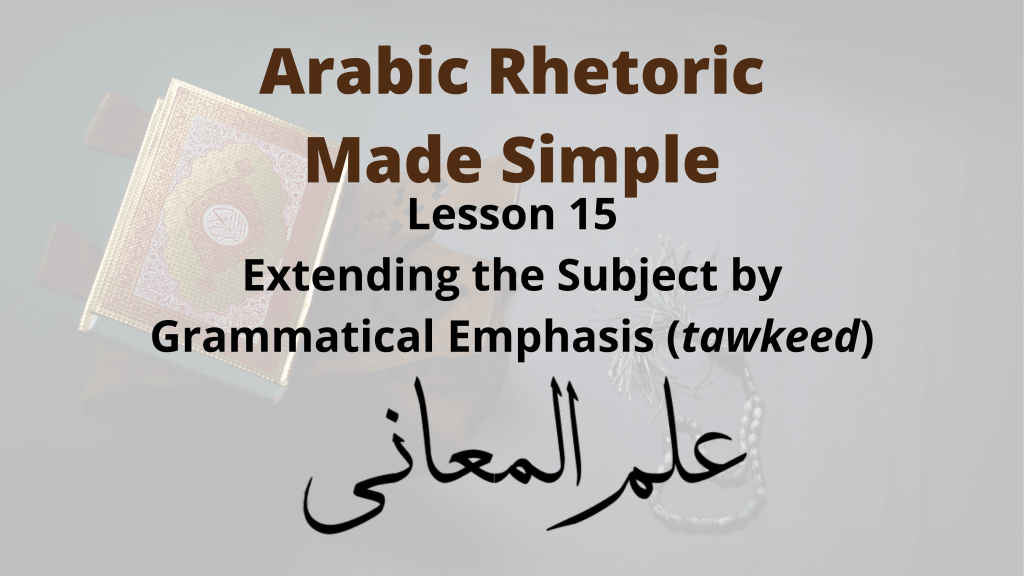
In this lesson on ilm ul Balaagha we are going to talk about why you would extend the subject of your sentence with grammatical emphasis.
This is called extension by توكيد.
As you know from grammar, extension with emphasis can be done in 2 ways.
- The first is to repeat the word.
- For example: جاءنِي زَيْدٌ زَيْدٌ
- The second is to use one of the grammatical emphasizers such as the word نفس.
- For example: جاءنِي زَيْدٌ نَفْسُهُ
Why would you do this in the first place?
1. To Stress the Subject
The first reason to extend the subject by emphasis is to affirm who or what the subject is. Basically, you are making sure the listener knows exactly who or what you are talking about. In English, we typically achieve this by simply vocalising the subject more strongly.
For example: ZAID paid me a visit.
2. To Stress the Subject’s Literality
The second reason is to make sure the subject is treated literally as opposed to figuratively.
For example, when I say: “The building fell”, you might assume some cement or glass fell off and you might interpret it figuratively.
So, to stress the fact that the actual building toppled over, I would say: “The actual building fell”. Or I could say: “The building itself fell”.
3. To Stress the Lack of Mistake
The third reason is to make sure your audience doesn’t assume you have made a mistake.
For example, if someone says: “Mehdi has come out” or “Mehdi has come”.
People will wonder whether he is speaking about the actual Mehdi, or what.
So, he would say “Thee Mehdi has come out”, or “The actual Mehdi himself has finally come out”.
4. To Stress Inclusion
The final reason to extend the subject by emphasis is to stress the fact that every member of a group is included in what you are saying.
For example, if I was to say about a class of students who have just finished a test: “They all failed”, you might assume I just mean the majority of them. Surely, there are some bright students who passed. But to stress the fact that I mean absolutely all students I might say: “They all failed, every last one of them” Or I might say: “Every last one of them failed”.
So all of these examples would be translated in Arabic using one of the two methods discussed in the beginning of this lesson.
- Proceed to next lesson: Extending the Subject with an AKA Extension (عطف بيان)
- Return to index page: Intro to Ilm Ul-Ma’ani
- Start free lessons: Sign Up for Free Mini-class